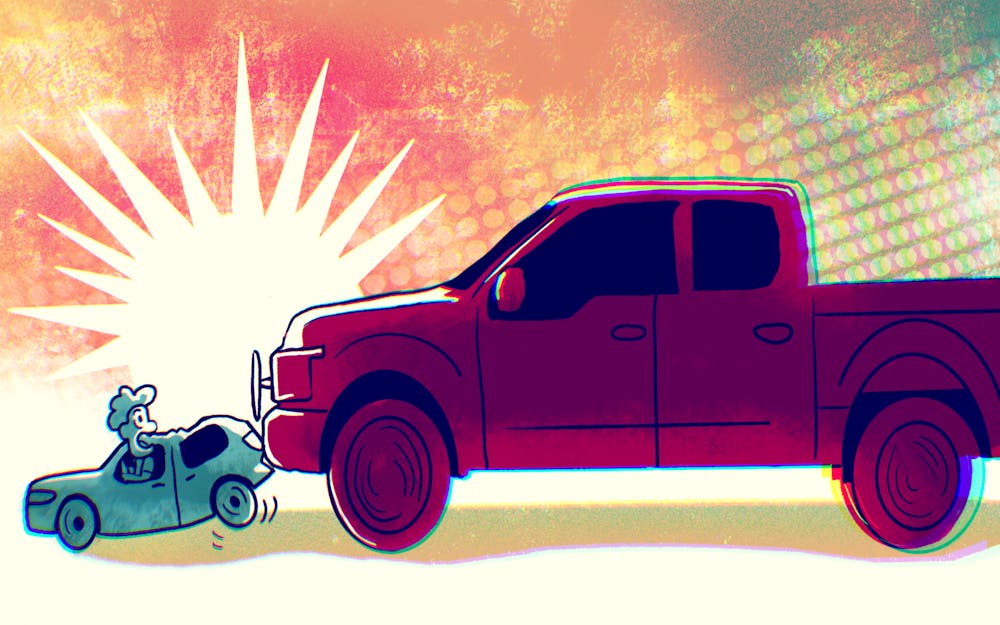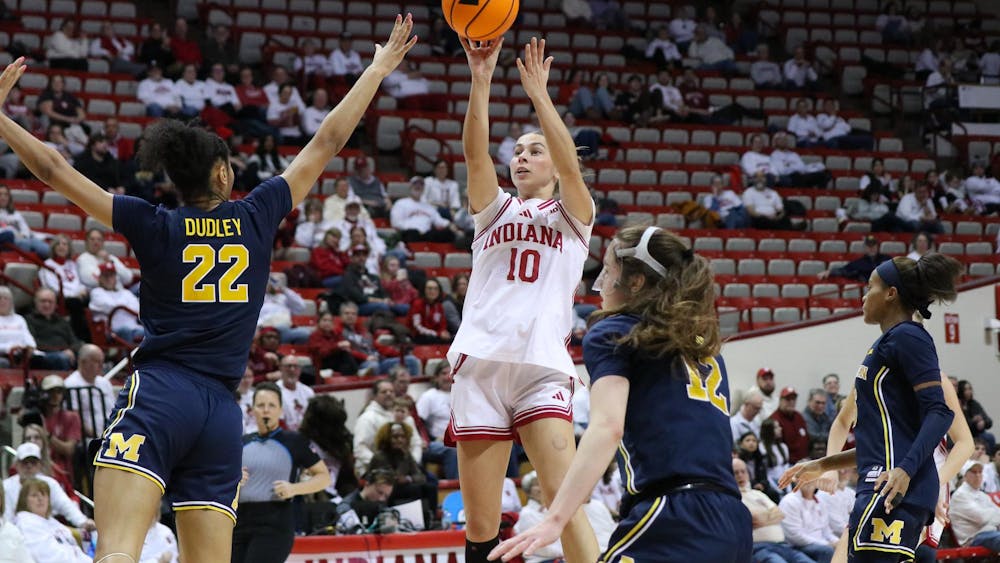If there’s one takeaway from my day to day observations of the cars on the road, it’s that size matters to American automobile owners. And this isn’t just limited to my observations — according to Forbes, light trucks accounted for roughly three-quarters of new vehicle sales in 2020. This category includes pickup trucks, SUVs, crossovers and minivans.
I get it — big cars are both convenient and good for the ego. Many cars in the light truck category can carry as many as seven to eight passengers, have spacious trunks or beds and physically place drivers and passengers above others on the road.
The only problem? These automobiles are both worse for the environment and far more lethal to other people on the road, cyclists and pedestrians. Pedestrians are approximately two to three times more likely to be killed when struck by an SUV than a traditional passenger car.
[Related: OPINION: The impossible task of staying 'busy' on a college campus]
And in addition to the dangers these vehicles pose to others, they are also more dangerous to the drivers themselves. Driving a large vehicle like an SUV or truck poses an increased risk of rollover in collisions due to their higher centers of gravity. It seems illogical that we would place more importance on having a big car than protecting the lives and safety of ourselves and others.
But this isn’t really a new or unique situation to Americans. Take the ongoing fierce debate happening over the implementation of gun control legislation that is still occurring despite the frequent and devastating mass shootings happening in our country.
Of any Organization for Economic Co-operation and Development country, the U.S. ranks number one in road accidents. The large front ends of SUVs and trucks make these vehicles more dangerous to cyclists and pedestrians than other cars — as those struck are more likely to be knocked down and run over rather than moving onto the hood of a vehicle, which is what would likely happen with a sedan-style car or any other automobile with a lower hood height.
As Americans, we often appear to value material freedom over the collective good. One article from MotorBiscuit — an automotive news and review website — tells me that, “Pickup trucks embody the American dream.”
When asked about the popularity of the F-series pickup, Ford CEO Jim Farley told CBS news, "It's your reliable partner. You can do work on, you can have fun with, you can kind of go anywhere. It's an American lifestyle."
[Related: OPINION: We all need to play outside more]
This is clearly the case for many Americans. But realistically, the average person has no need for a personal automobile with terrain adaptability and massive hauling ability. In an average taken from surveys done between 2012 and 2021, Axios reported that just 28 percent of Ford F-150 owners frequently used their truck for personal hauling, while 70 percent of owners said they frequently used it for “pleasure driving.”
Furthermore, according to Axios, Ford began advertising the F-150 model as more of a personal vehicle rather than one for utility in the late 90s and early 2000s, and by the mid 2000s, the pickups adopted smaller beds, larger cabs and higher suspension. These trucks are now bigger than ever despite being predominantly used for personal driving instead of frequent transportation of heavy items. Many owners also use the words “powerful” and “rugged” to describe their vehicles — further demonstrating the tie these trucks have to people’s egos.
It would be nice to see a country that prioritizes accessible outdoor spaces, walkability and most importantly safety over ownership of dangerous items like massive vehicles and guns. These giant automobiles are practically killing machines, and yet, our uniquely American love for big and souped up material items seems to take precedence over the safety of ourselves, other drivers, cyclists and pedestrians.
Leila Faraday (she/her) is a freshman studying policy analysis.






